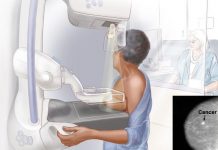Viruses are a group of diseases-causing microorganism which can affect cells of living organism.
Viruses cause different diseases in human beings, some of them sexually transmitted diseases. Examples are AIDS, smallpox, chicken pox, and poliomyelitis. In other animals, they cause diseases like rabies and avian-flu.
Viruses are deadly, as they damage many tissues in the body.They are not curable like bacteria diseases, because the drugs used to kill bacteria have no effect on viruses. The only way to prevent them is through immunization. Here, we shall study HIV/AID in some detail.
HIV (Human immunodeficiency virus)
HIV is the virus that causes AIDS. There is a similarity between the two because one them (HIV) leads to the other (AIDS). without retraction, both give one immunodeficiency.
This means that, they each destroy the immune respond system of the carrier Method of infection
1. Sexual intercourse without the use of condoms.
2. Blood transfusion from an infected person to another person.
3. From a pregnant woman to the unborn baby
4. Through the use of an infected and unsterilized sharp object, like knives, razor blades, and clippers during haircuts or male or female circumcisions
5. Through injections with an infected needle.
6. Sharing of toothbrushes
Noticeable Effects; When HIV enters the body of a healthy person. It takes from 3 to 10
years before it starts resulting in AIDS.
This is because the presence of HIV in the body is not quickly noticed, as the virus continuously battles with the white blood cells by attaching its tail fibre to the white blood cells of the person. The white blood cells in the blood are responsible for the fight against infection, and once the HIV is attracted to these white blood cells, the virus injects its nuclear materials into the host cell (ie. the white blood cell that is firs t attacked.
The host cell starts production viral parts instead of its own body materials. The multiplication of the virus in the host cell finally kills the host cell, and the host cell bursts to produce many virus to infect other white blood cells in that body. There
is now a battle between the virus and the immune system of the body, but at the
end, the virus conquers and overcomes the immune system.At this stage, AIDS starts manifesting.
AIDS manifests when HIV has destroyed the immune system of the body.
At this stage, the disease becomes terminal, ie. It will eventually
result in death.An AIDS patient has no immunity at all, that is, the body can n longer fight against any germs or infection. Therefore the body is prone to any disease it contracts
1. Persistent fever
2. Unusual fatigue
3. Rapid loss of weight
4. Persistent extensive itchy skin, irritation and rashes
5. Herpes-a blaster rash around the mouth or genitals
6. Chronic diarrhea longer than one month
7. Loss of hair
8. General weakness of the body
Eventually these symptoms accumulate and death occurs.
But there is a combination of drugs used for the patients so as to control the disease.
These drugs are every expensive, but they are being subsidized by government and
non-governmental agencies (NGOs) Are there ways AIDS is not spread?
This question is important, because of the impression so many people have about AIDS. Many people believe they have to dissociate themselves from AIDS patients.
1. Sharing of clothes, dishes, toilet seats or eating together.
2. Shaking of hands or schooling together
3. Kissing if there is no cut in the tongue or mouth.This is because the saliva contains a little virus which is not enough for AIDS infection to survive.
General preventive measures against HIV/AIDS
1. Abstaining from unprotected sex.
2. Education:There should be a sustained national mass campaign to educate people on the dangers of HIV/AIDS and now it is spread.
3. Use of condoms:This must be correctly worn, used and disposed of.
4. Good nutrition:Intake of vitamins and balanced diets will strengthen the immune system of the body
5. Avoid indiscriminate kissing, especially when there is a cut in the mouth or tongue. Even when there is no cut, prolonged kissing should be avoided.
6. Avoid sharing toothbrushes, and use of sharp objects lie razor blades, clippers or syringes
7. When there is a need for blood transfusion, the blood must be screened, to ensure that it is HIV/AIDS free
8. Partners about to marry should conduct HIV blood tests before marriage.
9. Have regular medical check-us
10. Be faithful to your partner, and avoid multiple ex-partners. Having multiple sex partners is regarded as irresponsible sexual behavior.




